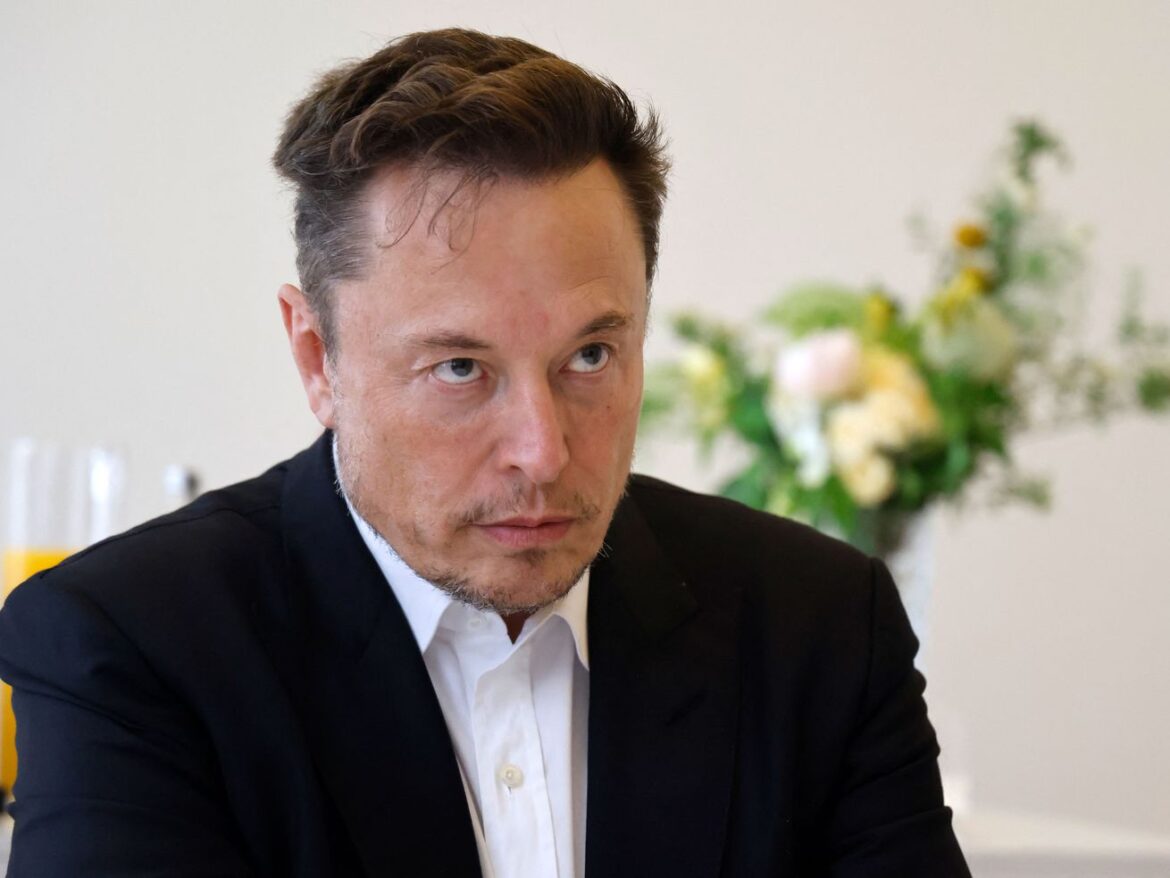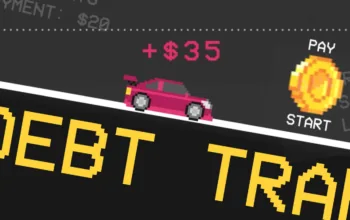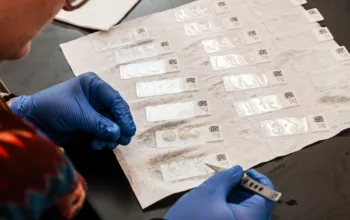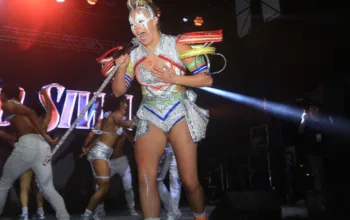Musk’s week of conspiracy theories, explained.
Despite criticism for continuing to engage with conspiracy theories, Elon Musk is posting through it.
In the past five days, Musk has doubled down on a conspiracy theory about the Allen, Texas, shooter; tweeted that billionaire philanthropist George Soros (who has long been the target of antisemitic conspiracy theories online) wants to “erode the very fabric of civilization” and “hates humanity;” and promoted a quickly debunked rumor that falsely claimed Washington Post journalist Taylor Lorenz was related to the founder of the Internet Archive.
When CNBC reporter David Faber asked Musk about his promotion of conspiracy theories in a live interview on May 16, Musk acknowledged that he does support these theories, like the Hunter Biden laptop scandal, because “some of these conspiracy theories” like the Hunter Biden laptop story “have turned out to be true.” When Faber pressed Musk about whether his promotion of conspiracy theories is hurting Twitter’s reputation with advertisers, Musk was defiant.
“I’ll say what I want to say, and if the consequence of that is losing money, so be it,” said the billionaire.
Musk’s argument is that because conspiracy theories can sometimes be true, it’s okay to entertain them. Musk is correct that the Hunter Biden laptop story did turn out to be real, even though many in the media questioned its initial veracity. Twitter, the company Musk now owns, even controversially blocked the New York Post story breaking the news. It’s also true, as my colleague Zack Beauchamp has explained, that there can be valid, non-antisemitic reasons to criticize powerful figures like Soros.
But many of the conspiracy theories Musk has promoted to his 140 million Twitter followers have proven false. And some argue there’s potential danger in Musk spreading misinformation or heated rhetoric. The way Musk characterizes Soros, for example, stands to “embolden extremists,” according to Anti-Defamation League president Jonathan Greenblatt. Musk accused Greenblatt of defaming him and vehemently denied he’s personally antisemitic, saying “if anything” that he’s “pro-semite,” in the recent CNBC interview.
Let’s clarify right out the gate that Musk has a First Amendment right to say what he wants, with some limited legal exceptions. And as the owner of Twitter, a private company, he has the final word on what speech is or isn’t allowed on Twitter. But because Musk is the leader of the platform and one of the richest, most influential people in the world, his actions have consequences, both tangible and symbolic. Moreover, Musk’s tweets serve as a hindrance to the very real challenges Twitter faces to win back more advertisers who have left the brand, in large part over concerns about Musk’s behavior.
A closer look at Musk’s “flirting” with conspiracy theories
Musk’s engagement with conspiracy theories in recent weeks hasn’t been direct. He’s been described as “flirting” with these theories, oftentimes replying to a conspiracy theory tweet rather than directly tweeting it himself. He’s often taken a “just asking questions” approach, especially on subjects where there’s an information void.
For example, the week of the recent Texas shooting, early coverage of the incident, including that of open source intelligence research group Bellingcat, claimed that the suspected shooter was a white supremacist, based in part on his social media activity. Soon after, Musk jumped into the fray. He responded to a cartoon meme posted by an account called “The Redheaded libertarian” that raised questions about whether the suspected shooter, who is of Hispanic origin, could really be a neo-Nazi, and whether his account on a Russian social media app was legitimate.
“Didn’t the story come from @bellingcat, which literally specializes in psychological operations? I don’t want to hurt their feelings, but this is either the weirdest story ever or a very bad psyop!” Musk replied.
Bellingcat founder Eliot Higgins has long denied theories about his organization having ulterior motives, saying in a past interview that its contributors are just “people with laptops and free time.” But even if you don’t believe Higgins or Bellingcat on the subject of the Texas shooter, you don’t have to take their word for it. That’s because Texas law enforcement confirmed on May 9, the same day Musk posted his initial tweet casting doubt on the shooter’s white supremacist ties, that the suspected shooter had “Neo-nazi” ideation as confirmed by patches and tattoos on his body.
Despite this additional evidence, Musk doubled down on his disbelief about the shooter’s ideology a week later in the CNBC interview, saying there is “no proof” that the shooter was a white supremacist. Either Musk doesn’t know about or is choosing not to mention law enforcement’s account here. That doesn’t mean there’s never reason to question public officials’ account of a crime, but Musk didn’t do that here; he just avoided acknowledging a notable piece of evidence that contradicts his theory.
Race and crime seem to be points of particular interest for Musk. Last week, he replied to a tweet that contained a chart claiming to show that Black-on-white crime is higher than that of other categories of crime by race. Many have criticized the chart for being skewed, but Musk seemed to endorse it. “Odd, why would the media misrepresent the real situation to such an extreme degree?” Musk tweeted.
Others have said that the chart Musk is referencing is misleading because it’s adjusted for percentage of the population: Because white people account for a larger percentage of the US population, it makes sense that they are victims of crime in larger numbers. Also, the chart didn’t include white-on-white crime, which is among the highest buckets of crime broken down by race in the US.
As with many of Musk’s conspiracy-theory-flirting tweets, when put together, we start to see a fuller picture emerge: a specific grievance. In this case, it’s how the media portrays race and crime.
What’s going on with Twitter and Musk’s businesses
It’s notable that Musk is tweeting controversial tweets during a particularly critical moment for the future of Twitter.
The company has lost more than half of Twitter’s top 1,000 advertisers since Musk took over in November, according to January data from analytics company SensorTower. Some major companies, like Disney, Amazon, and Apple, have continued to spend money on the platform, and Musk has said other advertisers are coming back. But he’ll need more advertisers in his corner if he wants to turn Twitter’s business around.
Musk announced last week that former NBCUniversal advertising executive Linda Yaccarino will be replacing him as CEO. Given her street cred in the advertising industry, she’s seen as someone who can help repair Twitter’s reputation with major brands.
“If anyone can do it, it’s Linda,” one advertising executive, who spoke on the condition of anonymity, told me last week. It looks as though Yaccarino has already managed to help bolster Twitter’s image with GroupM, one of the top advertising agencies in the world. The agency, which is owned by WPP, had designated Twitter as a “high-risk” company for its clients to advertise with, but, according to the Financial Times, recently removed the designation.
If Musk’s tweets were gaining him positive attention or drawing attention away from some other, bigger issue, you could say his tweets serve as a useful distraction or a savvy way of gaining free media coverage. Instead, Musk’s behavior is self-destructive. His controversial tweets could exacerbate the most pressing problem with Twitter: its relationship with advertisers.
Musk’s continued conspiracy theory flirtation threatens to stymie any progress Twitter is making on that front. Back in November, Musk’s tweet promoting a conspiracy theory about the violent attack on Nancy Pelosi’s husband was seen as one of the turning points for many advertising industry insiders in their assessment about whether or not to continue advertising on Twitter.
It’s clear that Musk’s repeated promotion of conspiracy theories has real consequences for his business. If there’s a deeper reason for why Musk continues to promote these theories despite the consequences — beyond merely saying what he wants to say — is anyone’s guess. Whatever the reasoning, Musk is posting through the firestorm and getting all kinds of attention for it. Maybe that alone is worth the trouble.



